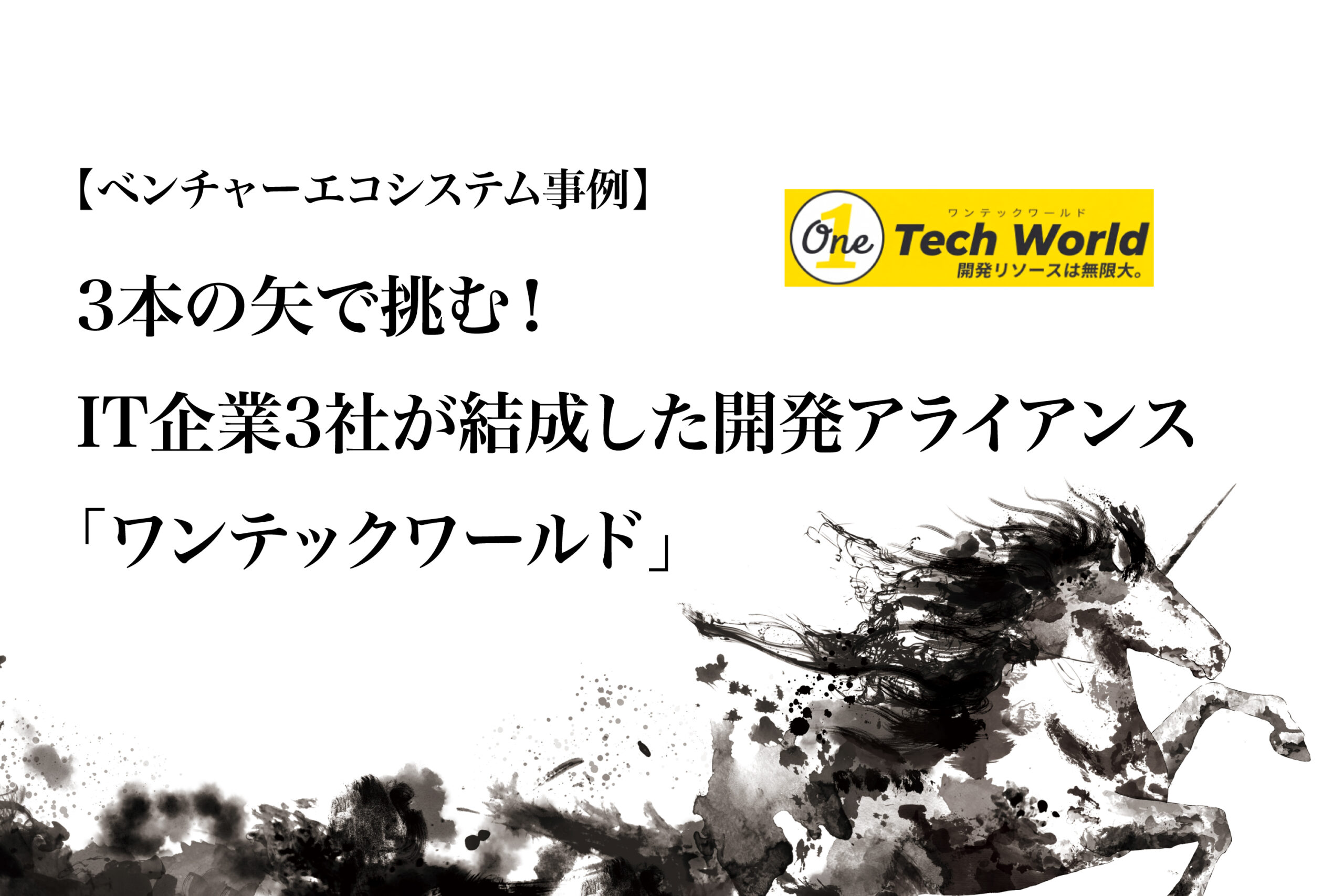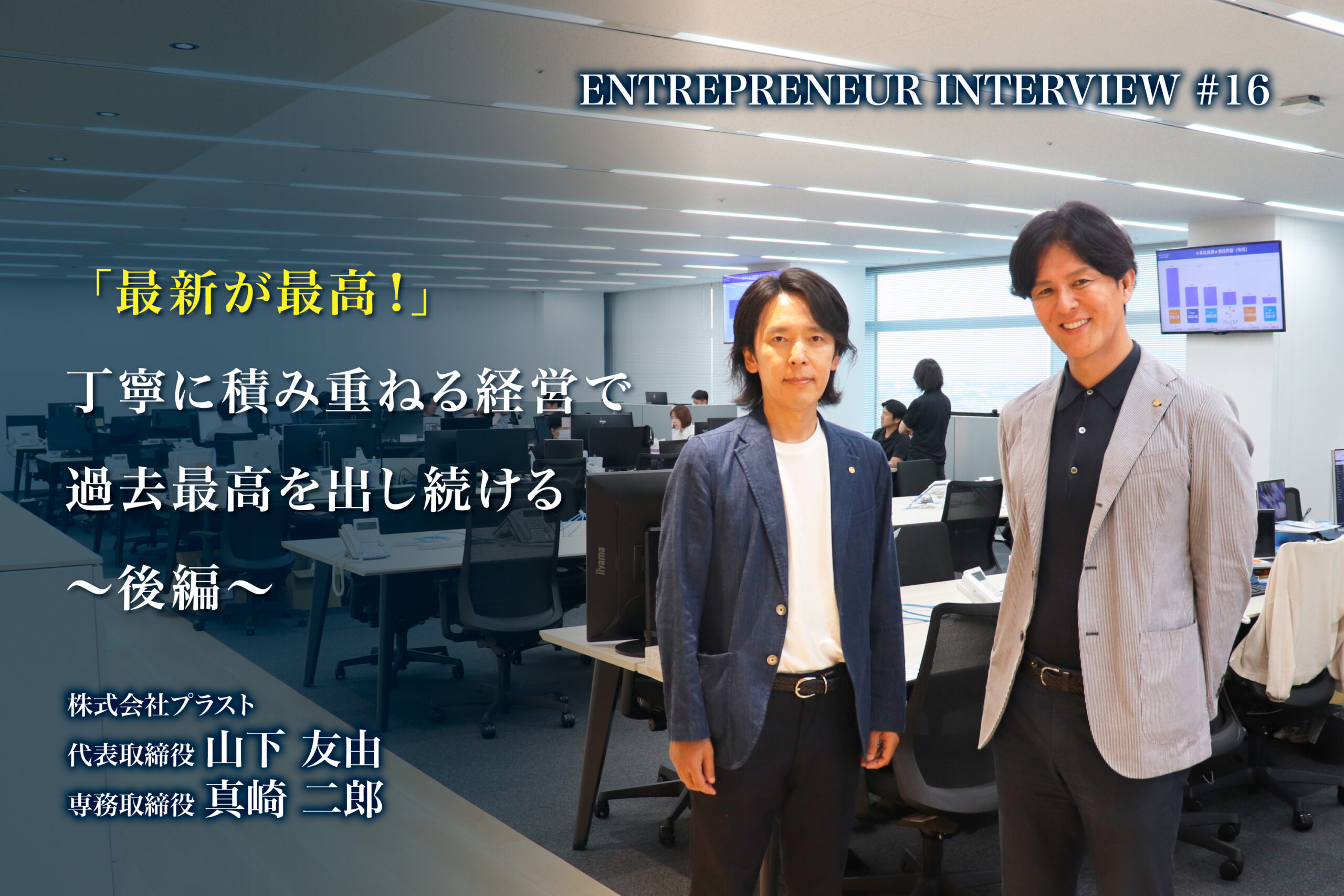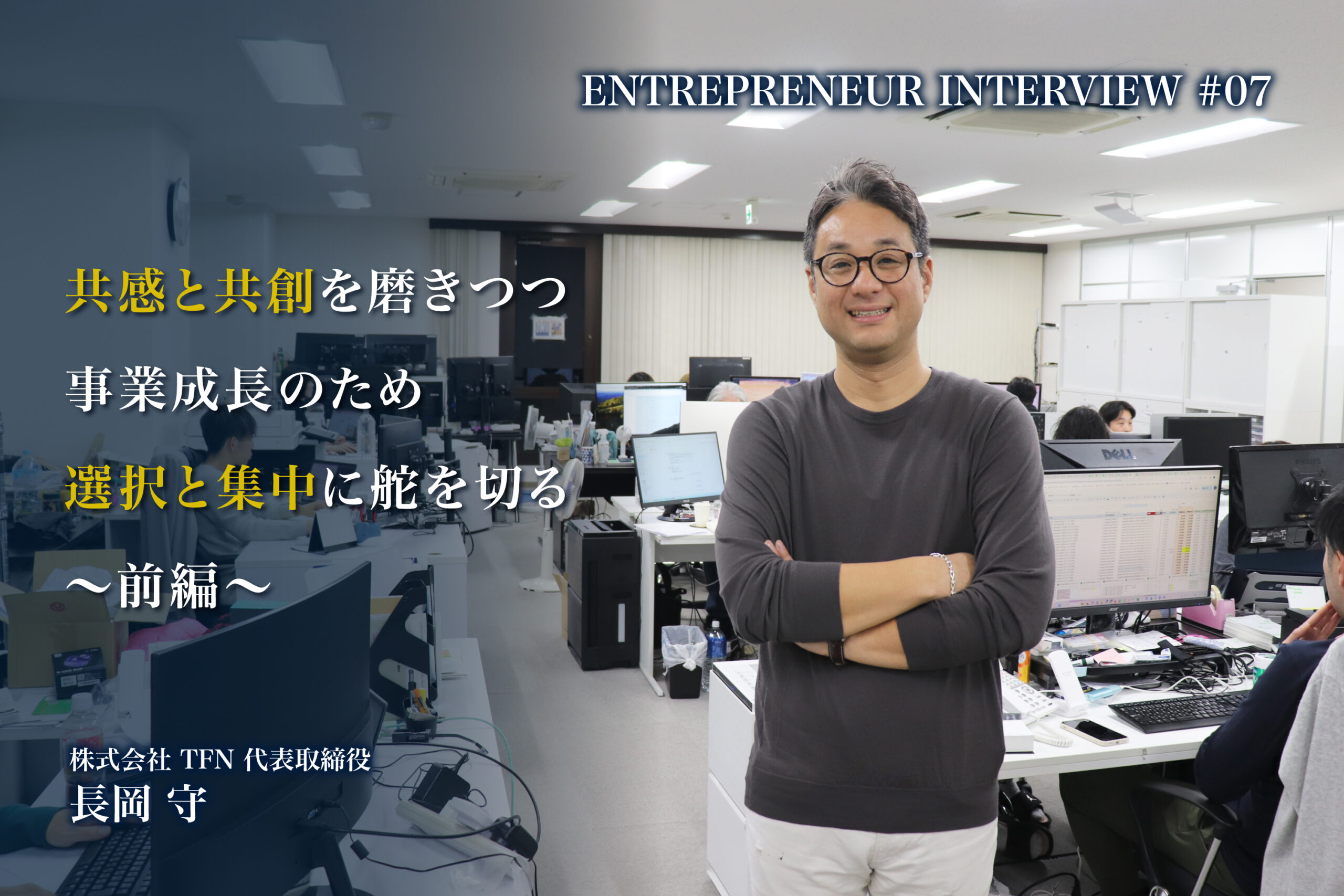
Steering towards selection and focus to grow the company while refining empathy and co-creativity
D-POPS GROUP has 23 group companies that we call partners (at the time of publication).
For this article, we interviewed Mamoru Nagaoka, the CEO of TFN, which joined D-POPS GROUP in 2018.
◆Background of TFN’s Initial Establishment
Sugihara:
Today, we’re interviewing President Nagaoka, CEO of TFN. Thank you for your time. It’s been nine years since TFN was established. Could you start by briefly telling us about the circumstances surrounding TFN’s founding and your career leading up to it?
Nagaoka:
Yes. I founded TFN in 2015. Around 2011, when I was working at SoftBank C&S, I first encountered cloud SIM technology. At that time, I explored various options to launch a business, perhaps as an in-house venture, but I eventually gave up on the idea. Then, around 2013 or 2014, I came across cloud SIM again, and I had a strong desire to pursue it as a business. That, combined with my aspiration to become an entrepreneur, led me to leave my ordinary job and start my own company. So, while e-commerce is our main business now, my primary motivation for leaving my previous job wasn’t to do e-commerce, but to pursue the cloud SIM business.
Sugihara:
I see. When did TFN ask to join D-POPS GROUP?
Nagaoka:
In 2018.
Sugihara:
You mentioned that the company started out working with cloud SIM technology. When did you begin the e-commerce business?
Nagaoka:
The reason I encountered cloud SIM in the first place was that I was in charge of distribution at SoftBank C&S. During my time as a salaryman, which was quite long, I played a trading company-like role in various product sales, so many manufacturers would come to us with proposals. Encountering cloud SIM was part of that. At the same time, I was also dealing with various manufacturers of smartphone cases, PC supplies, and so on. So, while cloud SIM was the main focus, I also had a feeling that e-commerce would become popular. So I thought, “Let’s do this business too!” and launched it alongside cloud SIM.
Sugihara:
That makes sense. So, people you knew from your SoftBank days supported you, then?
Nagaoka:
That’s right. After I became independent, many business partners besides those related to cloud SIM supported me. Among them, there are still companies that I had relationships with even before I started my business nine years ago. Naturally, I could also go to China myself to manufacture products and handle direct negotiations. So while we certainly have many new vendors, whether for domestic procurement or direct purchasing from overseas, there are occasions where I get introductions through connections I made back then.
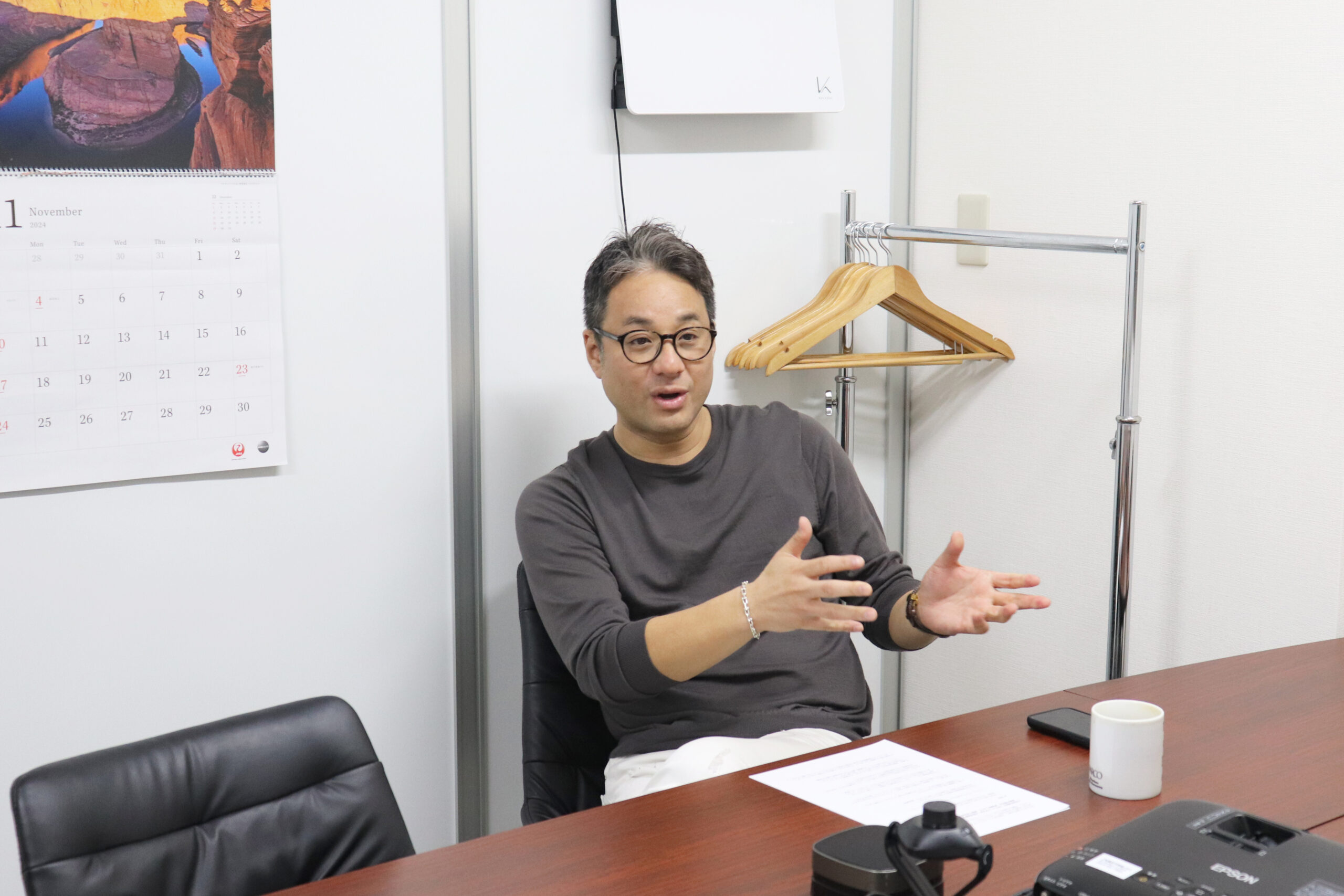
◆Business Overview
Sugihara:
That’s a huge asset, isn’t it? Next, could you briefly introduce TFN’s business overview?
Nagaoka:
Currently, it’s almost entirely focused on the e-commerce business. As for products, we’re targeting smartphone accessories. The total period we were involved in the cloud SIM business, which I mentioned at the beginning, was six to seven years, but we’ve now pivoted and are concentrating on the e-commerce business.
When we first started, we launched the company with both cloud SIM and e-commerce businesses. Operating a telecommunications business requires enormous capital. However, I was quite inexperienced as an entrepreneur, so my initial capital policy didn’t go well. At that time, I personally reached out to Mr. Watanabe, who is now a Managing Director at D-POPS GROUP, to ask him to join TFN as a director so that we could benefit from his business-related counsel. As a result, we also received an offer to join D-POPS GROUP and further grow our telecommunications business as a partner member. At that time, there were not so many group companies within D-POPS GROUP. There were a few CEOs who had originally belonged to D-POPS GROUP and then started their own group companies, but we were one of the very first companies to join from outside of D-POPS GROUP.
Sugihara:
I see. Perhaps that was one of the catalysts for the idea of a Venture Ecosystem that D-POPS GROUP is now aiming for.
Nagaoka:
That’s right. That’s how we were operating the cloud SIM business as a D-POPS GROUP company, but when we considered how to grow it further, President Goto proposed an M&A of a company that handles rental WiFi. What impressed me at the time was that he gave me three books about PMI and so on, and then I met the CEO of the M&A target company, and after that, it felt like President Goto was expecting me to make the decision myself.
Honestly, at that moment, I thought it was an unreasonable request, but I read all the books; handled the negotiations myself; drafted the contract; then, even though D-POPS GROUP had enough money, my company found our own investors; and finally, the contract was successfully concluded.
About half a year later, we took over ‘any-fi,’ a rental WiFi business that was originally part of D-POPS GROUP, and ran a rental router store on Miyamasu-zaka in Shibuya. From that point on, we gradually leaned into our WiFi business more and more.
On the other hand, the e-commerce side had steadily increased its product lineup since the company’s inception. A characteristic of our company is that we proactively incorporated DX and IT as part of our corporate culture, so we developed our e-commerce system in-house from an early stage. I feel that this has supported our growth.
Sugihara:
And then came COVID-19? I heard that your purchasing business was started during the COVID era.
Nagaoka:
Yes. Before COVID, both telecommunications and e-commerce were growing steadily, and just when we had acquired the telecommunications business through M&A and the numbers were quite steady, we entered the COVID era. It had been less than a year since the M&A, and within a month after the pandemic started, our P&L was in the red by about 40 to 50 million yen. I truly didn’t know what to do.
I still remember it now…I called President Goto and consulted with him, saying that the company was in a big deficit and we were even considering layoffs. At that time, President Goto said something like, “So you’re a president who cuts people, that’s all you can do, eh?”
No way, I was thinking about how to get TFN back into the black, for the sake of the group, and layoffs were only a part of that idea. But President Goto had a slightly different perspective. He told me, “It’s easy to lay off employees, and it would probably be easy to get back into the black immediately that way. But on the other hand, if you do that once, you will only ever be a CEO who does that. That will follow you for life…are you okay with that? And employees will also see you as a CEO who lays people off. So, maybe you should think about how to grow the company instead.”
Fortunately, the e-commerce business sold reasonably well due to the stay-at-home demand during the pandemic. So, although the telecommunications business was almost at zero, we managed to get by somehow. But it was incredibly tough.
Anyway, there was nothing else to do but start something new, and the fastest option was to drastically increase the number of products in e-commerce. At that time, Mr. Watanabe and I were trying to somehow increase our suppliers, and increasing suppliers meant handling home appliances. We focused on how to get products from famous manufacturers, but no matter how many introductions we received, no one would sell to us. I was thinking, “This is bad.”
But there are quite a few people selling home appliances in the world. So I thought there must be something to it. It was then, purely by chance at a drinking party, that someone’s words caught my ear: “I’m into ‘Poi-katsu’.” I asked, “What’s Poi-katsu?” And they replied, “It’s buying things, earning points, and then selling them on Mercari or other platforms.” I said, “That’s amazing. How much do you make a month doing that?” And they casually replied, “About 500,000 yen.” I thought, “If I had ten people like this, my company could recover!” So at that point, I started investigating.
I went directly to our current business partners and various e-commerce companies that handle home appliances, sticking around for hours, constantly observing, trying to figure out where they were getting their supplies. I realized that it wasn’t a usual supplier. From there, digging into various information on social media and elsewhere, I eventually arrived at the conclusion that they were purchasing and reselling goods. From that point, things moved fast. The website was completed in a week, and we said, “Let’s do it!”
So, we started our online purchasing business. At that time, we didn’t even have money to rent a storefront, so we started doing it in our head office. It quickly became popular, but then the owner told us that a regular rented office cannot be used as a storefront, so if we wanted to continue, we had to either move out or rent our own store. So, we immediately rented a store.
After renting the store, the purchasing business grew rapidly, reaching about 1.8 billion yen in one year, and with the support of D-POPS GROUP, we somehow managed to turn a profit. That being said, in the end, we’re actually going to close down the business in February 2025. After all, it was a low-profit business to begin with, but it carried us through the COVID era, so I can only say we were lucky to have it.
Sugihara:
I don’t think you should dismiss it as mere luck. To overcome that adversity, you practically tore apart your brain thinking over and over, observing, and quickly executing a plan to launch a business, and you managed to get through it. That’s wonderful. And then, just when one might think, “Let’s keep going with this purchasing business now that it’s on track!”, you made the bold decision to end it.
Nagaoka:
That’s right. When I look at the other entrepreneurs President Goto introduced me to, I realize that ultimately, it’s about profit more than sales. And when I thought about making TFN a good company that gives back to its employees, I figured this purchasing business definitely doesn’t belong among our services. As an example, if a business partner’s situation changes, our company will naturally be affected by that change. Ultimately, I had a personal desire to return to our own services and our own products. So, I decided our business will gradually pivot that way.
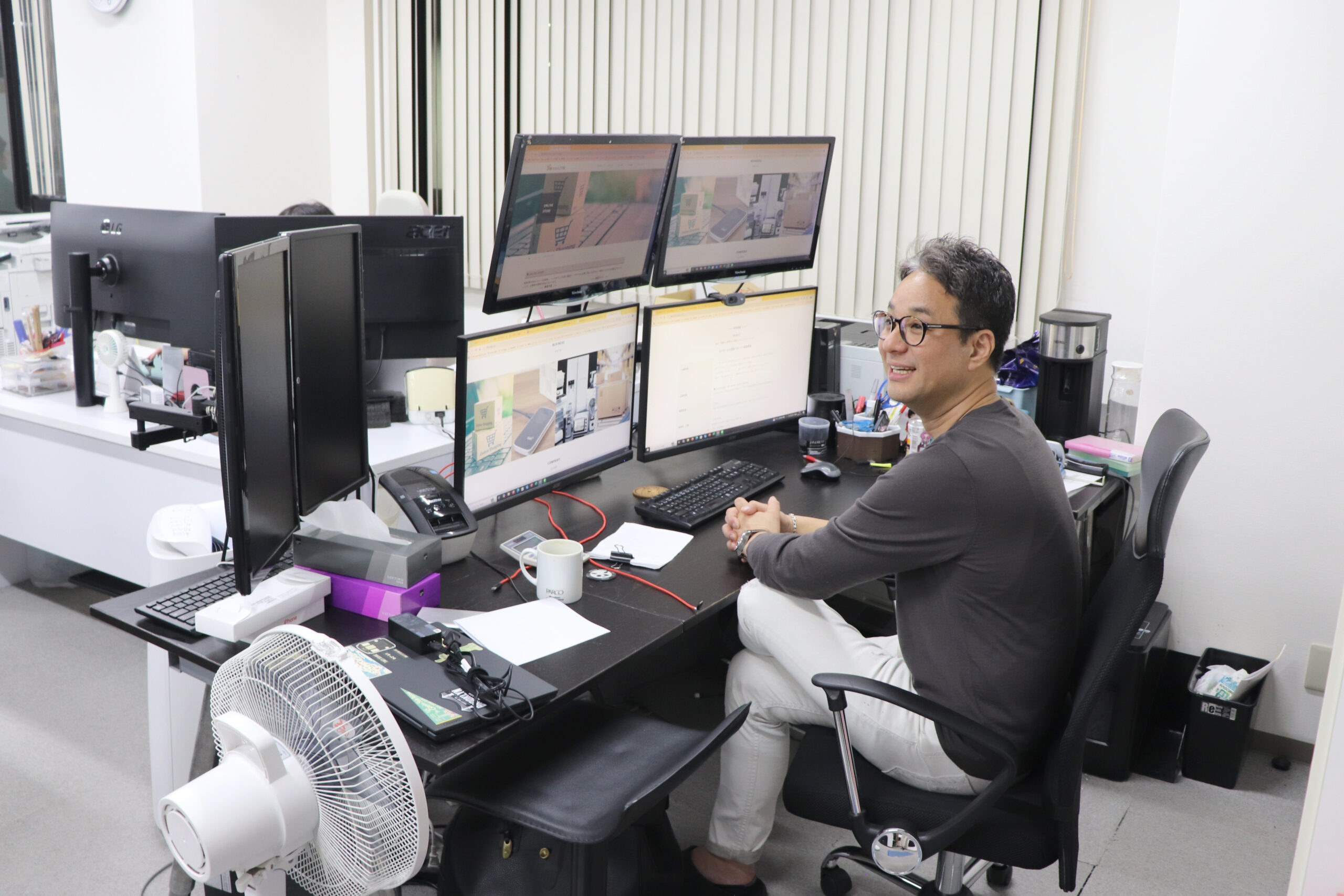
◆Development of In-House Goods
Sugihara:
Was it around that time? You’ve developed and created various things in-house, such as bicycles and suitcases, but when was it you started making your own e-commerce products?
Nagaoka:
Actually, we've been doing it since the company was founded. In the past, we developed products like scales and beauty rollers, so we’ve always been doing product development. I’ve always loved making things, so I’ve continued to do it even now. The impetus for making a bicycle was that someone in the company just happened to want one when we were deciding what to create. We made it, and it turned out to be a hit.
Sugihara:
I see! So, while working on various businesses, TFN has really accumulated a lot of experience and know-how. What would you say is TFN’s strength?
Nagaoka:
I would say it’s the way we construct our operations and flow. We are very thorough about forming a process and then implementing it into our system, so I think that’s our greatest strength.
Sugihara:
You also developed your e-commerce system in-house. Can you tell us about its features?
Nagaoka:
Certainly. We now have about 12 e-commerce stores. While there were systems out there that could instantly aggregate sales and quickly register products for operational purposes, they had both good and bad aspects. For example, with an external system, it was usable, but we could only ever achieve an 80% score. I thought it would be faster to just build everything ourselves.
From the time of our founding, we decided to do our system development in-house. Initially, rather than developing a full-fledged system, I built it myself using Microsoft Access, but it eventually couldn’t keep up, so I decided to develop our own system. I was certain that investing in our own systems and automating our processes would be beneficial in the long run for our company’s growth. And I also thought that in the future, the know-how we accumulated through in-house development could lead to various things, such as selling the software or acting as a consultant for other companies. That’s why we’ve focused on system development.
Sugihara:
So you expanded your business by leveraging your strengths. After many twists and turns, and overcoming the rough seas of the COVID era, the storm finally subsided. At that point, you thought deeply and decided to set your strategy for this year to focus solely on the e-commerce business, isn’t that right?
Nagaoka:
Yes. I personally like coming up with ideas, and when I decide to do something, I’m quick to execute. However, I had been thinking for a long time that our businesses were too dispersed. I’m more of a person who wants to think about how to turn one business into 6 billion yen, rather than creating three 2-billion-yen businesses to get 6 billion yen, or in other words, I want to do things in a Lanchester way*. That idea became stronger, and when I thought about what we are originally best at, it was e-commerce and retail. In order to concentrate on that, we decided to sell the telecommunications business for now.
(*Note: the “Lanchester” method is a well-known business strategy in Japan which focuses on concentrating resources in a single market to achieve dominance.)
Interview conducted by D-POPS GROUP’s advisor Genta Sugihara.
TFN
Company President and CEO: Mamoru Nagaoka
Address: 1F Asano Higashi-nihonbashi Bldg., 2-27-8 Higashi-nihonbashi, Chuo-ku, Tokyo
Established: November 25, 2015
Website: https://tfnmobile.com/
Next, in the latter part of the interview, we discuss:
・Selling off a business
・TFN’s atmosphere and culture
・“Realizing a Venture Ecosystem”
・TFN’s 10-year vision
・And other topics
Be sure to check it out here:
https://d-pops-group.co.jp/en/column/tfn-interview-latter-part/




